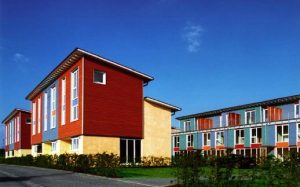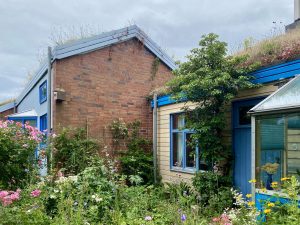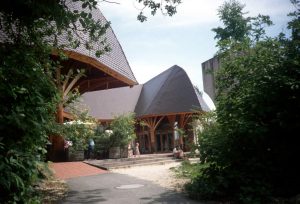 14467 Potsdam: 19 terraced houses on the edge of the BUGA site, completion: 2001. Ecological board stack solid timber house, life cycle assessment study. Architect's office Brenne-Eble, Berlin. Client: GSW, Berlin
14467 Potsdam: 19 terraced houses on the edge of the BUGA site, completion: 2001. Ecological board stack solid timber house, life cycle assessment study. Architect's office Brenne-Eble, Berlin. Client: GSW, Berlin
Links
www.propotsdam.de/mieterservice/wohnkonzepte
www.potsdam.de/bornstedter-feld
Last Updated: May 4, 2020
Similar projects on sdg21:
All project/s of the planning office: Eble Messerschmidt Partner (EMP); City region: ; Country: Germany; Bundesland: Brandenburg; Characteristics: 03 - 4 floors, Garden City, Terraced house, Residential, Eco-settlement; typology: Settlement; Thematic: Building Biology, Renewable, IGA / BUGA, Earth Building, Model settlement, Rainwater infiltration, Solar architecture




